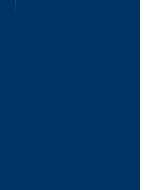
| Community Service | ||||||
|
National Recognition for Regional Activities |
||||||
|
This year the University of Washington School of Medicine received the 2002 Outstanding Community Service Award from the Association of American Medical Colleges. The national award recognizes the cooperation between the medical school and its affiliates to ameliorate the lack of adequate health care in remote small towns, in inner-city neighborhoods, and among needy populations throughout the states of Washington, Wyoming, Alaska, Montana, and Idaho. These public service efforts are a long-standing collaboration between the University of Washington School of Medicine and thousands of practicing physicians, hundreds of towns and cities, innumerable clinics and agencies, and five public universities.
• The life-changing influence of community physicians who volunteer as clinical teachers for UW medical students and role models of the service ethic. • The volunteer public service initiatives of UW students in the health professions. These take place in Seattle and in towns across the five-state WWAMI region. • Outreach to diverse populations, particularly Native Americans and Alaska Natives. • International health programs. • Community health needs research that has led to volunteer action and public policy changes. Dr. Paul G. Ramsey, vice president for medical affairs and dean of the UW School of Medicine, accepted the award on behalf of the faculty, staff and students who volunteer their time to worthy causes in the community. “Community service is an inseparable part of the institutional mission of the UW School of Medicine,” Ramsey said, “and is pervasive across all disciplines, including the basic sciences, primary-care fields, clinical specialties, and clinical subspecialties. These public service efforts are imbued with a spirit of collaboration with many institutions, agencies, and individuals working together for the common good. “This award recognizes a highly collaborative partnership that has served the people and communities of our region for over 30 years, a partnership that has helped make our school the nation’s leader in training primary care physicians.” Dr. John B. Coombs, associate vice president and associate dean for regional affairs, rural health and community relations, said, “The WWAMI region has many geographically isolated, medically underserved towns and minority populations who have chronically inadequate health care. This region is our community, where faculty and students daily learn and serve and to which a large percentage of our graduates return for lifetimes of service.” The medical school’s role in community service is exemplified in its programs to train and retain physicians and other health professionals for service in needy rural areas of the region, as well as in other humanitarian aims. Faculty, staff and students do volunteer work with HIV-positive and hepatitis C-positive populations, cancer patients, school children, the urban homeless and street youth, the chronically mentally ill, low-income or frail elderly, and many other groups. A significant number of the medical school’s graduates go on to local, national, and international public service careers. Among them are clinicians who have treated patients in the war-torn Sudan, helped ameliorate small pox as a natural disease agent, strived to reduce violence at home and in the streets, headed agencies to assist those who have mental illnesses, and served as advisors for foundations dedicated to improving health-care for people living in poverty in the United States and abroad. Some research science graduates are working to solve global problems in health, the environment, the world food supply and other areas, or are volunteering their free time to important causes. The Association of American Medical Colleges is a non-profit organization founded in 1876. The AAMC represents the nation's 125 accredited medical schools, nearly 400 major teaching hospitals, more than 105,000 faculty in 98 academic and scientific societies, and the nation's 66,000 medical students and 97,000 residents. |
||||||
|
© 2003 - 2004 UW Medicine
Maintained by UW Health Sciences and Medical Affairs News and Community Relations Send questions and comments to drrpt@u.washington.edu |
||||||


